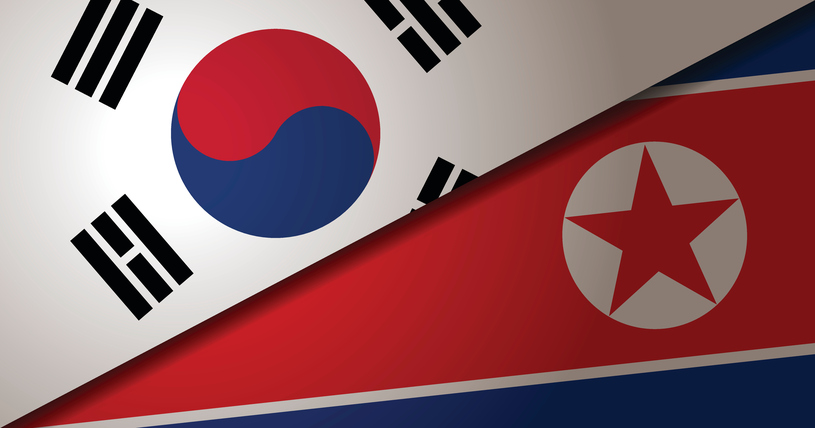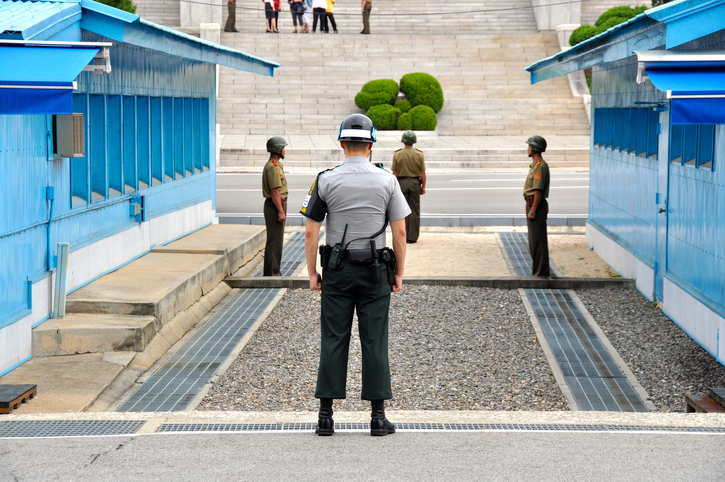
Try for a minute or two to imagine that you are a North Korean doctor. It is a role that provides a particularly interesting perspective from which to consider the possibility of Korean reunification, the long-cherished goal of both sides in the inter-Korean conflict. In the current political circumstances, Korean reunification would essentially mean a single Korea dominated by the wealthy, democratic South. As a member of the DPRK's growing middle class, with access to outside information, you are well aware of this fact.
Would your medical qualifications still be valid under the new regime? You currently work in an under-funded and ill-equipped hospital, in which the standard treatments for most ailments involve a saline drip and whatever black market Chinese drugs your patients' relatives can afford. Would you be able to cope in a modern South Korean hospital? Would you even recognise the equipment? Even assuming that you are allowed to practice in the new Korea, will you have any patients? Won't they prefer to travel South for treatment? Could you work as a general practitioner in the countryside? Or would you have to take on lower-paid work as a nurse or an orderly?
From this perspective, reunification starts to look less like a goal to work towards and more like something to be feared. The same is true in most North Korean professions. These days, the vast majority of South Korean jobs are heavily computerised, and the average North Korean has only a limited knowledge of information technology. A North Korean mechanic would have no idea how to service a Prius, a North bank clerk no clue about SWIFT, and a farmer no knowledge of drone-based soil-quality monitoring. In some sectors things are even worse. North Korea has one of the largest armies in the world made up of 1.19 million active service members and 7.7 million reservists - which would suddenly become obsolete in the event of reunification, even were it not tainted by its association with the Kim regime. The same can be said for the police force and the prison guards.
Can Reunification be achieved?
 PANMUNJOM, SOUTH KOREA - SEPTEMBER 26, 2014: Korean soldiers watching border between South and North Korea in the Joint Security Area (DMZ) on September 26, 2014 in Panmunjom, South Korea.
PANMUNJOM, SOUTH KOREA - SEPTEMBER 26, 2014: Korean soldiers watching border between South and North Korea in the Joint Security Area (DMZ) on September 26, 2014 in Panmunjom, South Korea.
This is not to say that North Korean workers are unskilled. They know how to re-engineer a Soviet-era truck to run off firewood instead of petrol, how to bribe border guards to help them smuggle DVDs out of China, and how to cook up a batch of crystal meth. Unfortunately for them, these skills are unlikely to be in high demand in a unified Korea. Years of famine and dictatorship have taught them to be suspicious of authority, avoid contact with the state and work outside the rules: tendencies that often leave South Korea's 31,000-strong population of Northern defectors struggling to fit in with South Korea's polite, hard-working and law-abiding society.
While the German example is frequently cited in discussions of Korean reunification, experts recognise that it provides only the haziest possible guide on how to manage such an event. German reunification took place nearly thirty years ago now, is estimated to have cost around two trillion euros, and has left a legacy of economic disparities that are still visible between East and West. Moreover, the developmental gap between the Federal Republic of Germany and the German Democratic Republic was far smaller than that currently present in Korea. While West Germany merely had to make some economic sacrifices to help its neighbour catch up, Korean unification would essentially entail the absorption of a third world country by a first world one. While politicians on both sides like to tick the reunification box in their speeches, in reality no one knows how such a state could be achieved.
This does not, however, mean that reunification is impossible. Via its contact with China and Russia, and to a much lesser degree through the inter-Korean complex at Kaesong, North Korea is slowly but surely catching up with the outside world. It is estimated that between 70,000 and 100,000 North Koreans currently work abroad, mainly in the forestry industries in the Russian Far East and Northern China.
Peeking into the outside world
The kickbacks they pay for these coveted jobs provide a major source of income for the DPRK government's palace economy, but the workers also bring back knowledge and gadgets from the outside world. Another major source of goods and information are the armies of smugglers, businessmen and traffickers that cross back and forth over the porous border with China on a regular basis. Heading outwards they carry antiquities, defectors and for the larger operators - North Korean products due to be disguised as Chinese goods and shipped abroad. On the return trip they carry clothes, electronics, an increasing number of communist nostalgia tourists from China, and foreign media carefully copied onto DVDs and thumb drives. At the time of going to press, the trade was so brisk that the latest Seoul fashions were generally hitting the streets of Pyeongyang between six months and one year after their emergence, thanks to the spread of pirated K-drama series and Chinese-made clothes across border.
This spread of outside technology is partly illicit, partly subject to tacit governmental consent, and partly the object of active state participation. While still severely restricted, the DPRK's national intranet has grown in leaps and bounds over recent years, as smartphones, laptops and tablets (whether foreign or locally made copies of foreign designs) have become common in the larger cities, being sold on the black market but also in high-end shopping outlets and malls catering to the nouveaux riches. Locally designed apps and games are available to consumers, and a fledgling online shopping market has appeared. Similarly, while the skills of North Korea's state-sponsored hackers have become notorious, the DPRK is also a growing provider of outsourcing services to foreign companies looking for high-quality coding at a cheap price. In the large cities other signs of growth and development are apparent: foreign food is increasingly popular, Chinese taxis zip along once-empty roads, and scooters have begun to replace bicycles. North Korea, in other words, is beginning to catch up.
This process is neither as fast nor as smooth as it could be, however. It is hampered by various factors: the government's paranoia and desire for control, civil service and military corruption, the almost total lack of coordination between the various ministries involved, the effects of twenty-plus years of foreign sanctions, and the diversion of funds that could be used to help develop the economy into the maintenance of the elite patronage networks that keep the Kim family business functioning.
When North Korea becomes a "normal state"
Nevertheless, the only hope for a successful reunification lies in North Korea's continued development; not merely because this serves to improve developmental parity between the two Koreas, but because economic growth tends to be a satisfactory substitute for ideological fervour, as the Chinese example has demonstrated.
Outsiders witnessing North Korea's enfant terrible behaviour and its continuous mistreatment of its own citizens are apt to fall back on the politician's syllogism when considering sanctions: 1. Something must be done about this. 2. This is something. 3. Therefore it must be done. However, experience has shown that while sanctions inconvenience the DPRK leadership somewhat, the Kim family and their lieutenants invariably succeed in making sure that their heaviest burden falls upon the ordinary citizens. It is those who are attempting to trade with the outside world are likely to be particularly badly affected: precisely the people who are doing most to normalise North Korea's status.
If North Korea is to become a normal state, it will happen at the pace of commerce; despite foreign hectoring, not because of it.
Jennifer Dodgson is a Ph.D. Candidate at the Lee Kuan Yew School of Public Policy, National University of Singapore.